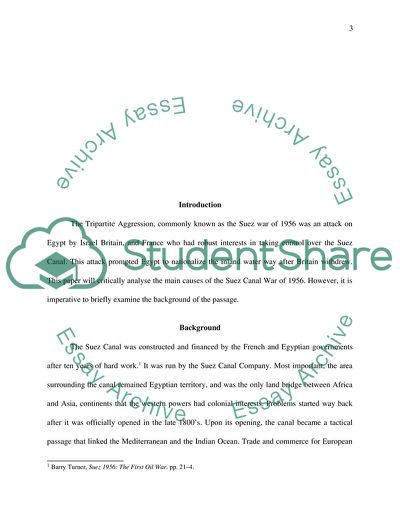Cite this document
(Causes of the Suez Canal Crisis of 1956 Research Paper Example | Topics and Well Written Essays - 4000 words, n.d.)
Causes of the Suez Canal Crisis of 1956 Research Paper Example | Topics and Well Written Essays - 4000 words. https://studentshare.org/military/1845627-what-caused-the-1956-suez-conflict
Causes of the Suez Canal Crisis of 1956 Research Paper Example | Topics and Well Written Essays - 4000 words. https://studentshare.org/military/1845627-what-caused-the-1956-suez-conflict
(Causes of the Suez Canal Crisis of 1956 Research Paper Example | Topics and Well Written Essays - 4000 Words)
Causes of the Suez Canal Crisis of 1956 Research Paper Example | Topics and Well Written Essays - 4000 Words. https://studentshare.org/military/1845627-what-caused-the-1956-suez-conflict.
Causes of the Suez Canal Crisis of 1956 Research Paper Example | Topics and Well Written Essays - 4000 Words. https://studentshare.org/military/1845627-what-caused-the-1956-suez-conflict.
“Causes of the Suez Canal Crisis of 1956 Research Paper Example | Topics and Well Written Essays - 4000 Words”. https://studentshare.org/military/1845627-what-caused-the-1956-suez-conflict.


